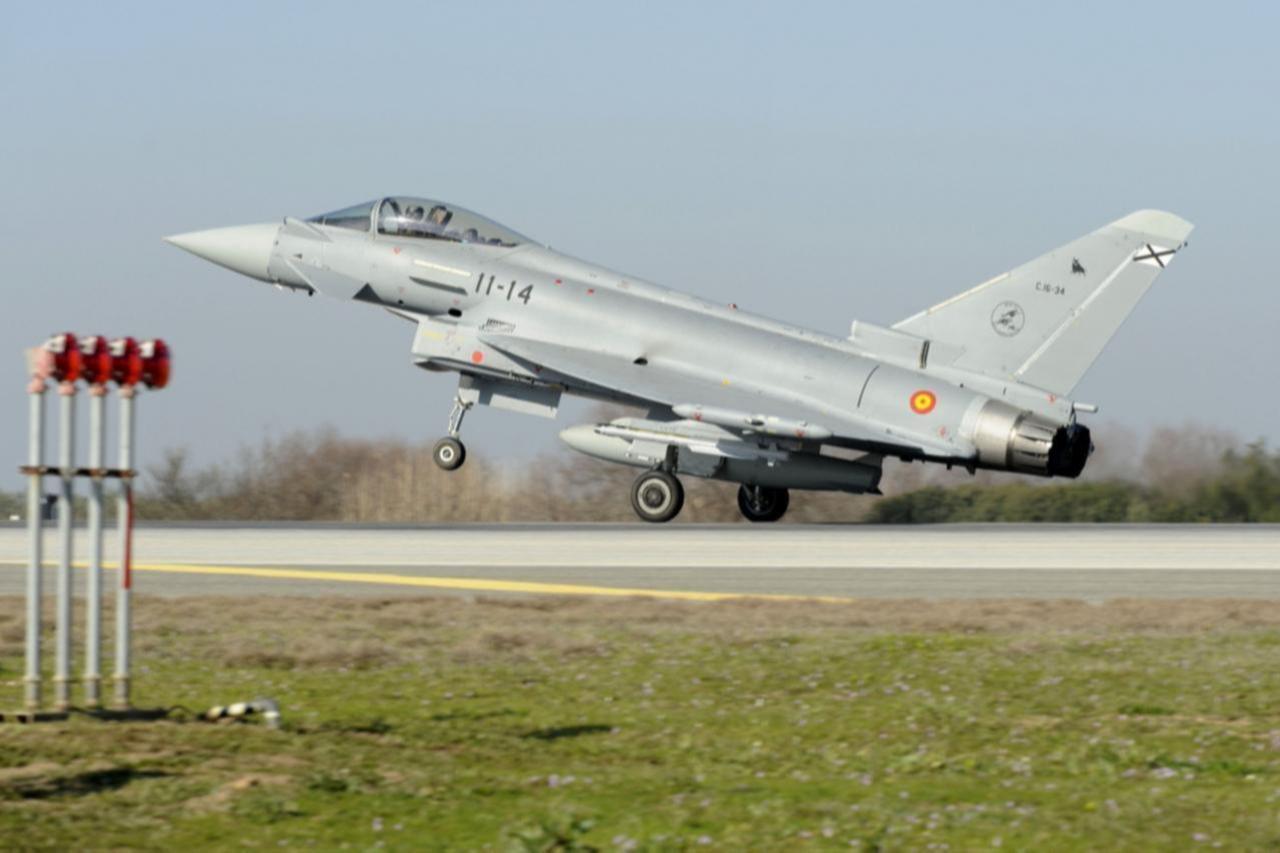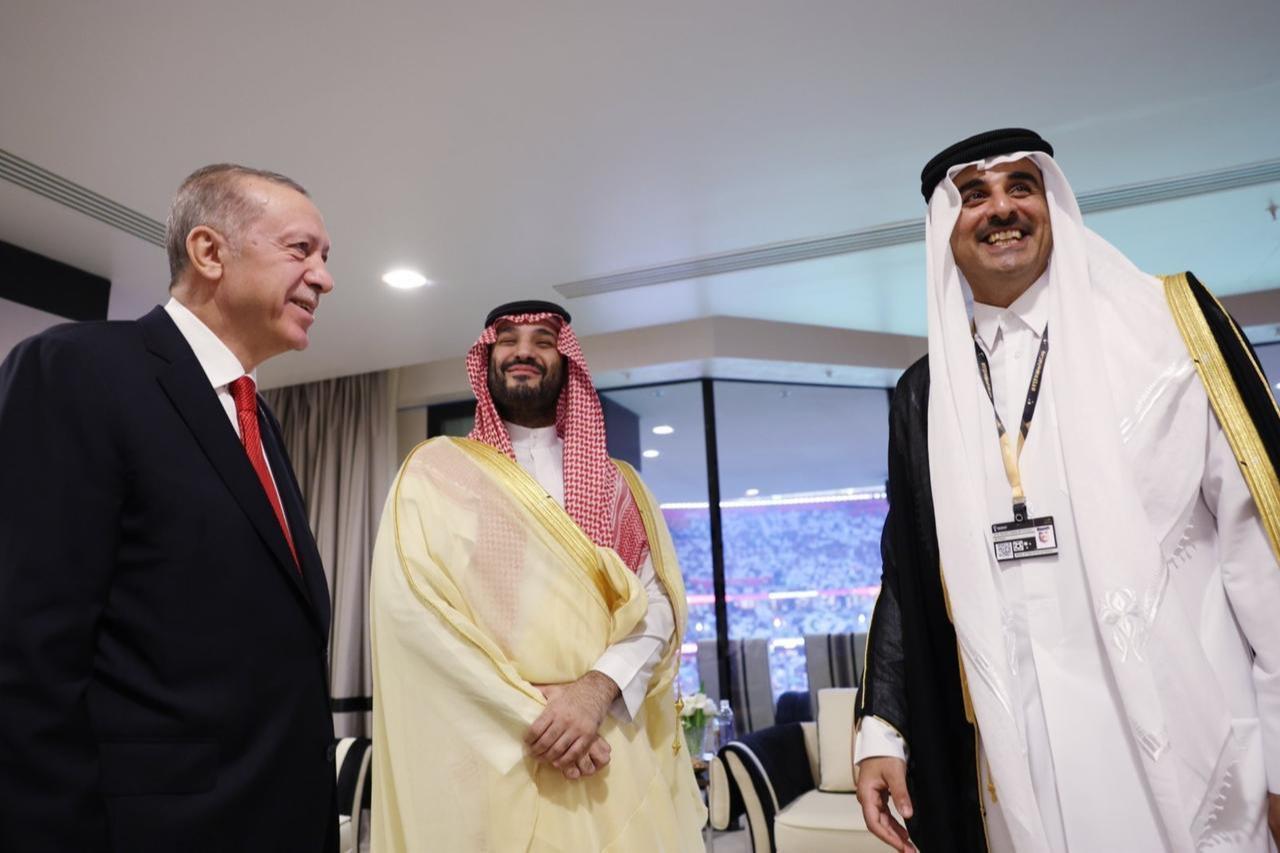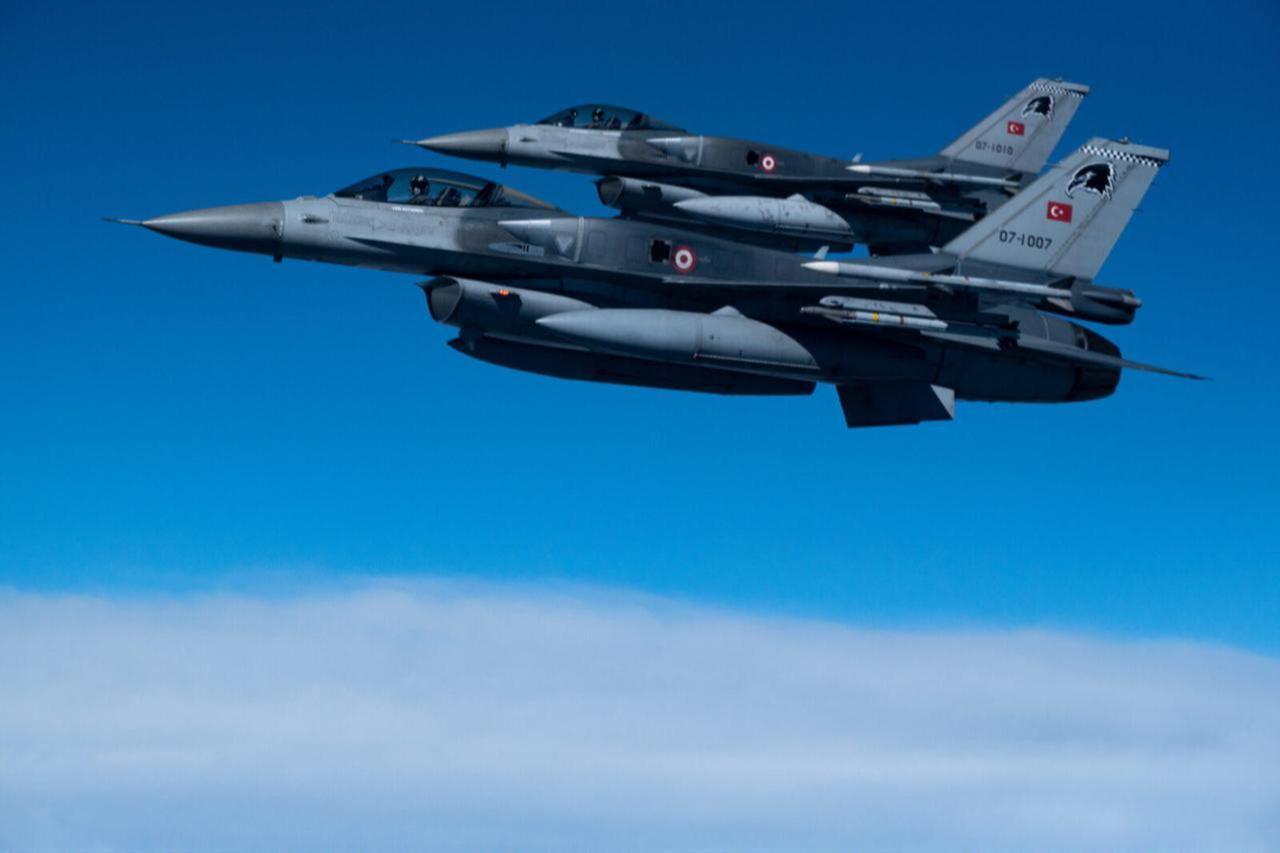
Türkiye is in advanced discussions with Qatar to acquire second-hand Eurofighter Typhoon fighter jets as Ankara seeks urgent solutions to modernize its aging air force, according to sources familiar with the negotiations.
The come as Türkiye's latest effort to address a critical gap in its air capabilities while awaiting the deployment of its domestically developed Kaan fifth-generation fighter aircraft, expected to enter service in the early 2030s.

Turkish Defense Minister Yasar Guler and Air Force Commander General Ziya Cemal Kadioglu traveled to Doha on Tuesday for discussions on the potential aircraft procurement, a Qatari source confirmed. The Turkish defense ministry announced separately that Guler met with Qatari Deputy Prime Minister and Defense Minister Saoud bin Abdulrahman Al Thani the same day.
Regional sources told Middle East Eye that an agreement between the two nations is nearing completion, though negotiations continue. Qatar currently operates 24 Tranche 3A Eurofighter Typhoons, which could provide a faster alternative to other procurement options Türkiye is pursuing.

The discussions come as Türkiye faces mounting pressure to replace its rapidly aging F-16 fleet. In July, Ankara signed a preliminary memorandum of understanding with the United Kingdom to purchase 40 new Eurofighter jets, but negotiations over pricing and delivery terms remain stalled due to what Turkish officials consider an expensive initial offer.
Any sale of Qatar's aircraft would require approval from the Eurofighter consortium, comprising the UK, Germany, Italy, Spain and France. Sources indicate the consortium supports the potential deal, viewing Türkiye as a significant future customer that could later pursue upgrades and additional Tranche 4 jets equipped with advanced radar systems.
Türkiye's fighter jet shortage stems from its 2019 exclusion from the U.S. F-35 program following Ankara's purchase of Russian-built S-400 air defense systems. The decision left Türkiye scrambling for alternatives to modernize its air force capabilities.
While Turkish Air Force leadership has expressed willingness to acquire available aircraft from various sources, including F-16s, Eurofighters or F-35s, some defense establishment figures advocate for a more selective approach. These officials argue Türkiye should focus on upgrading its existing F-16 fleet with emerging domestic technologies rather than investing in costly interim solutions.
The debate reflects broader tensions within Türkiye's defense strategy as it balances immediate operational needs with long-term indigenous production goals. A Turkish defense consortium aims to deliver the first Kaan aircraft by late 2028, though many analysts believe initial deliveries are more realistic around 2030.
The potential Qatar deal highlights Türkiye's pragmatic approach to filling capability gaps while pursuing strategic autonomy in defense production. For Qatar, transferring the aircraft could support broader defense cooperation with Türkiye while potentially facilitating future procurement from European manufacturers.
The Turkish defense ministry has not issued a statement following the Doha meetings, and government officials have not responded to requests for comment on the negotiations.